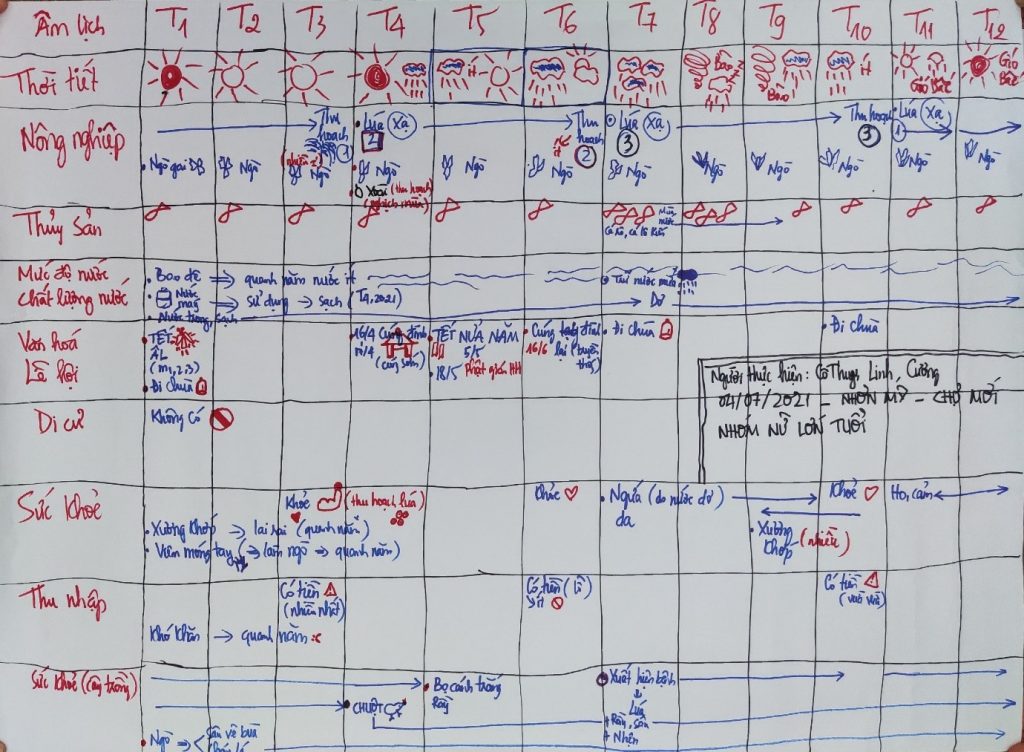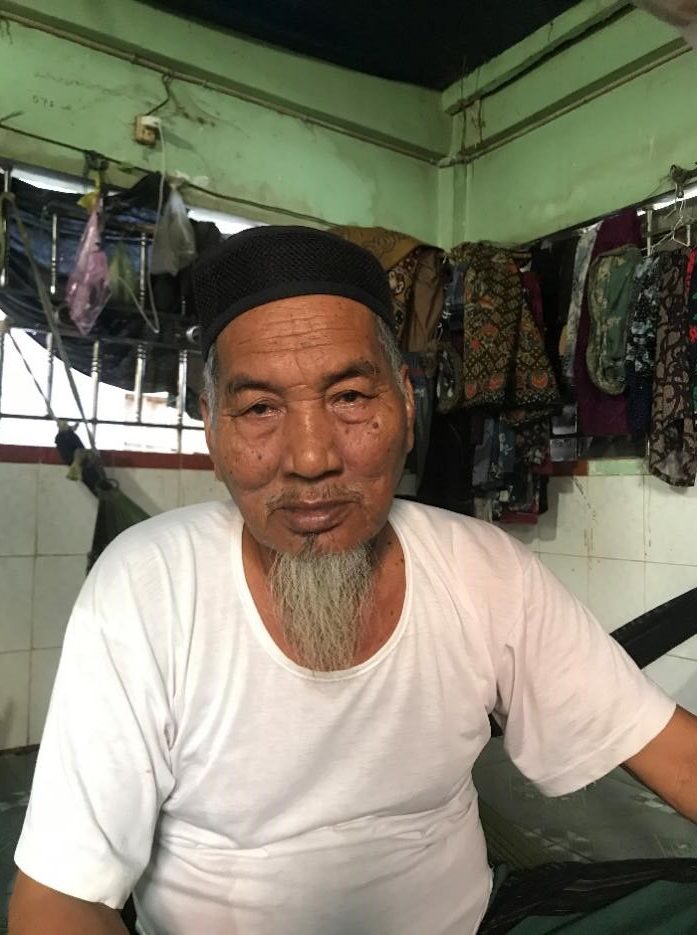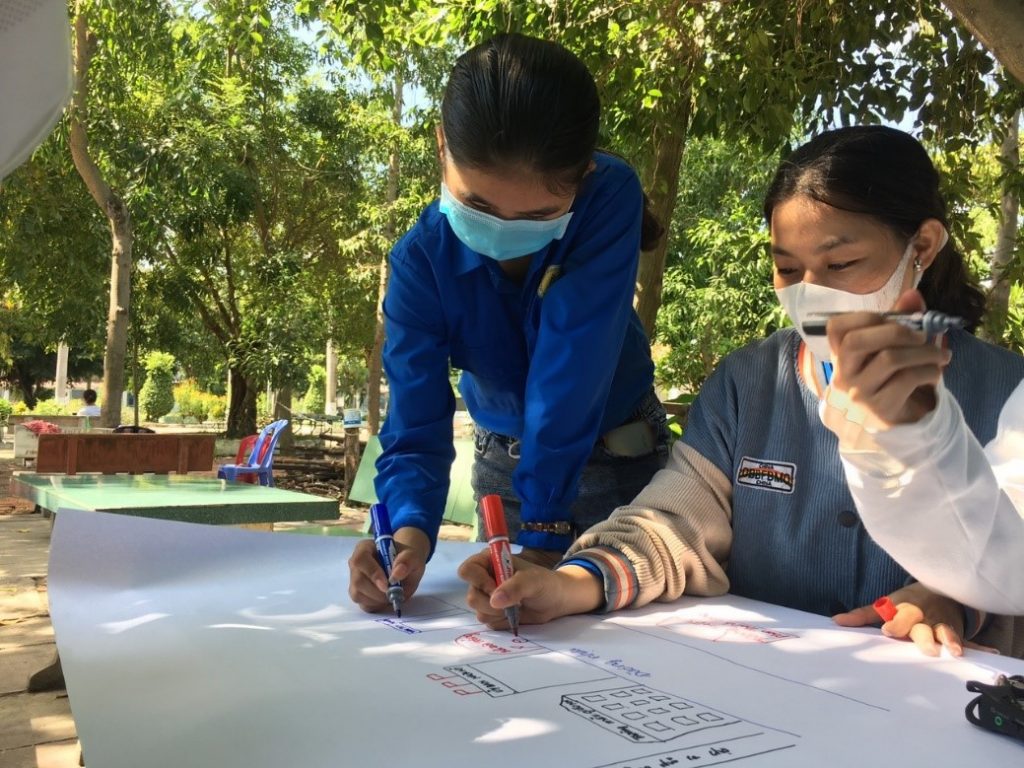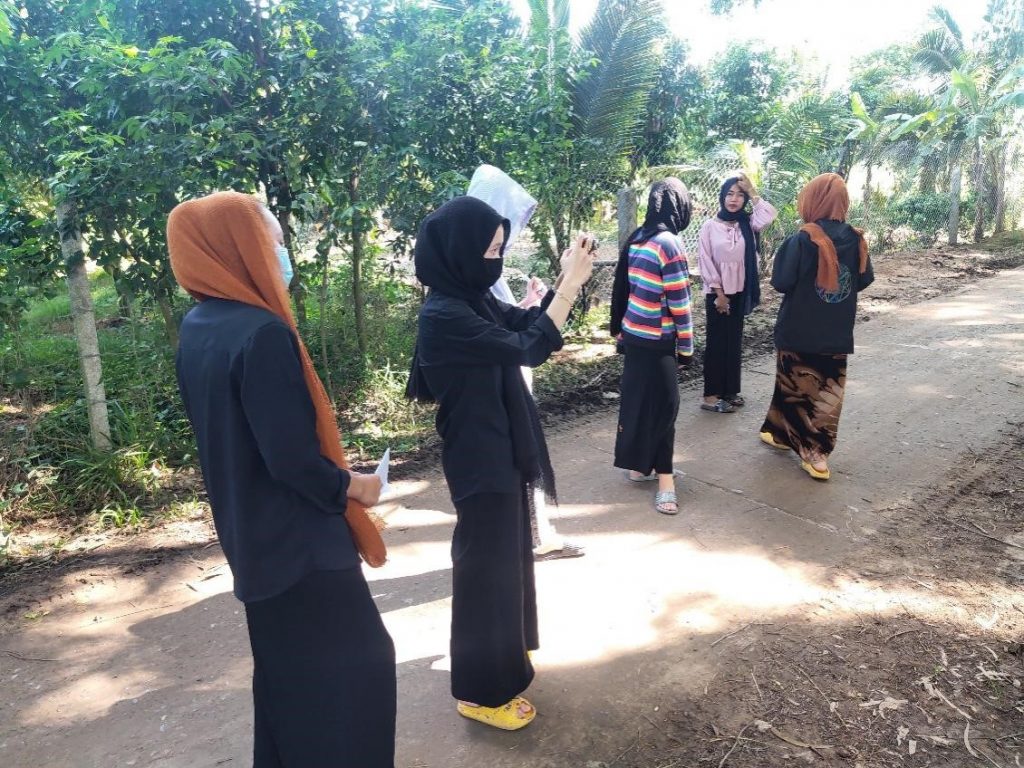In this Lug piece, Siobhan Warrington (NUOHUC) and her colleagues Hue Nguyen (An Giang University) and Laura Beckwith (Northumbria University) provide an update on the participatory oral history, mapping and photography work with two rural communities in the Mekong Delta as part of the Living Deltas Hub. Siobhan, Laura and Hue are working with a student-staff research team at An Giang University: Mai Thị Minh Thuy and Nguyễn Xuân Lan (research coordinators); and Hoang Uyen Cao, Huynh Linh, Lam Duy and Phan Cuong (student researchers). This is a follow-up to the post which introduced this project.
Note: Due to increasing Covid-19 infection rates in Vietnam, it has not been possible for the team to visit the communities since early July; this post is based on their visits between May and July 2021.
Student researcher, Duy Lam, is part of the student-staff research team who is listening to and learning from younger and older women and men in two rural communities in Vietnam’s Mekong Delta. Lam when reflecting on some of the generational differences he had witnessed noted:
“Older people are more concerned with environmental change [than younger people], they have witnessed more changes, and have had more opportunities to be in contact with nature. For example, in the past they played games in the forest and the river. In contrast the young generations now, stay at home, focus on education and their careers, and so have less time to spend for nature, and so don’t realise about environmental change.”
Further thoughts from the team members based at An Giang University provided more detail of generational difference. As Lam suggests, younger people in the delta are managing a distinct set of pressures relating to their education and paid employment opportunities which lead them to migrate, or consider migrating, to urban areas. Younger research participants also talked about how their ideas and voices are not listened to, nor taken seriously at the community level and beyond. Despite the widespread association of youth and climate activism, many young people from rural areas most-affected by climate change feel they are excluded from decision making and under pressure to secure a livelihood with limited economic opportunities. And while some older people may have more voice at a local level, as a group with distinct knowledge, needs and capacities relating to climate change, older people are notably missing from climate change policies and programmes.
We have chosen to adopt an intergenerational approach to our research, creating spaces to listen to individuals as well as small groups according to age and gender; and to facilitate dialogue about environmental change between generations.
A collaborative approach that fosters learning and reflection
We are working with two rural communities in An Giang Province. In one site, research participants were primarily part of the Kinh ethnic group, who make up the majority of the population in Vietnam, while the other site was home to a Cham community, a Muslim minority group in the Mekong region.
Our approach engages community representatives across the research journey, from informing the research agenda and managing the logistics, to positions as community researchers, and opportunities to determine how research results should be shared locally and regionally.
We designed a programme of learning for a group of 6 student and staff researchers at An Giang University, who passed this learning on to the community researchers. Despite the fact everything is on Zoom, we adhered to our principles of learning through doing, the importance of individual and group reflection, and creating a fun and supportive learning environment. Hue, another Living Deltas team member at An Giang University, has supported with translation and co-facilitation when required.
The research team is using a range of methods including participatory rural appraisal tools (timelines, seasonal calendars and transect walks), oral history, and participatory mapping and photography.




Preliminary findings
The field work has revealed the multiple ways that the environment in the Mekong Delta is changing due to deforestation, loss of biodiversity and deterioration of water quality in local waterways. Community members recognise these changes and are enacting strategies to cope with and manage these challenges. For example, in An Phu, a decline in the local fishing industry has led to alternative livelihood sources such as aquatic agriculture and planting mango trees.
The student and staff researchers found older people to have considerable knowledge of, and attachment to, their environment, based on their livelihoods and experience over the life course. In contrast, they found younger people had more contextual knowledge about broader environmental issues from school and social media. These two types of knowledge are both important and complementary, indicating the value in promoting an intergenerational dialogue on environmental challenges.
Furthermore, researchers recognised that the process of research had created an opportunity for older people to reflect on their responsibilities in relation to environmental change, and for younger women to develop their confidence to share their knowledge and experience. They also found various instances of intra-household support (sharing mobile phones and toilets) and an older woman living by herself receiving food and financial support from neighbours.
We look forward to sharing details of our co-analysis and communication activities later in the year.
This research was funded, in part, by the School of History Classics and Archaeology (Newcastle University). This additional funding from HCA enabled the research to go ahead at this time, despite the funding cuts experienced by all UKRI/GCRF funded projects that took effect from March 2021.
